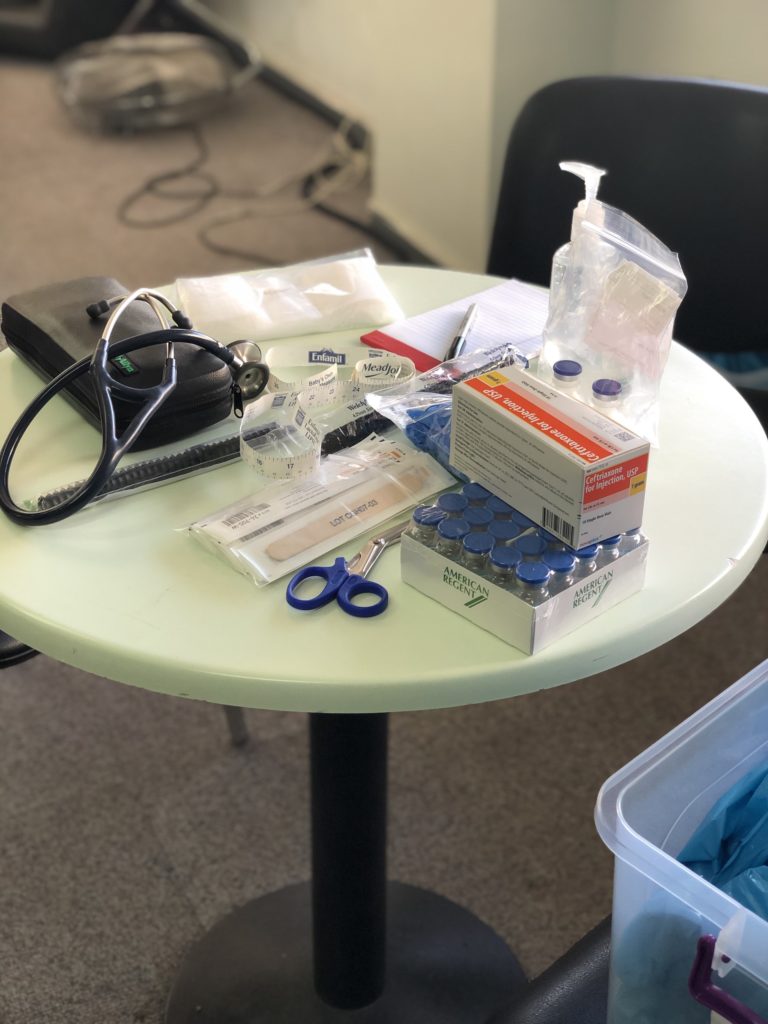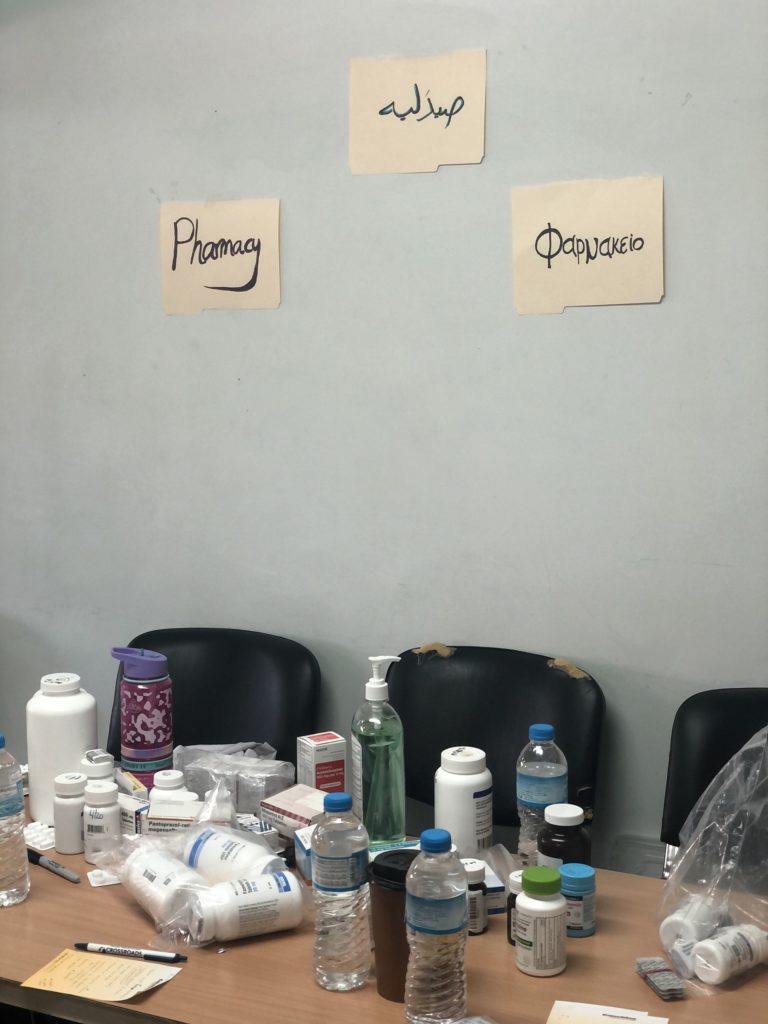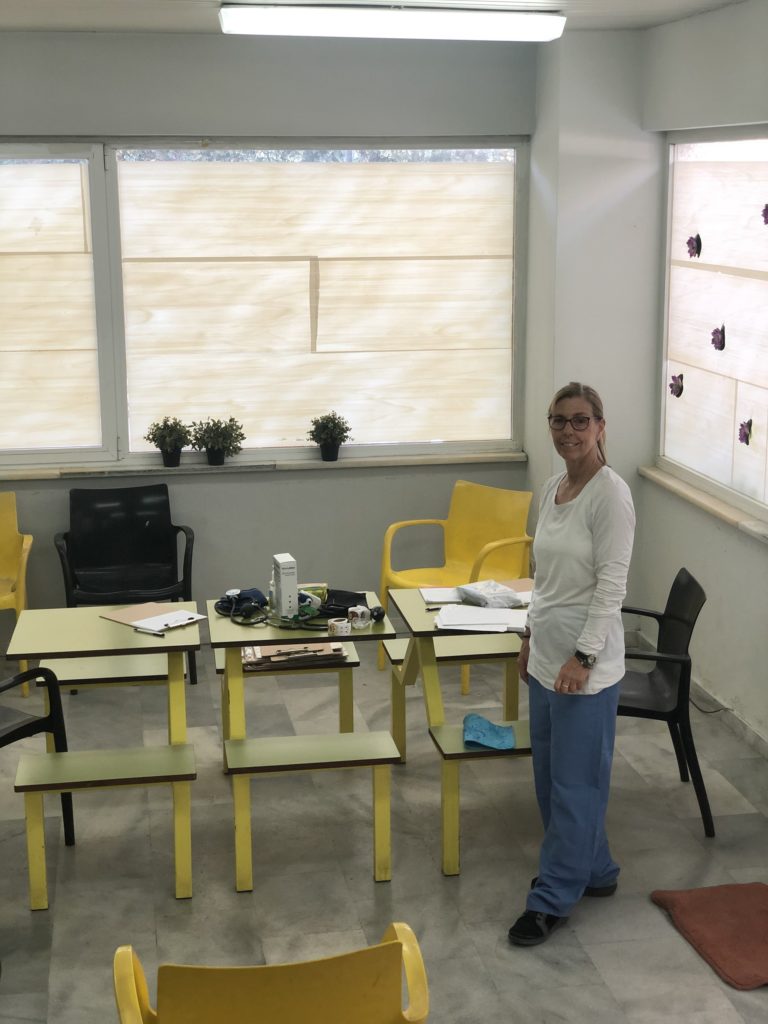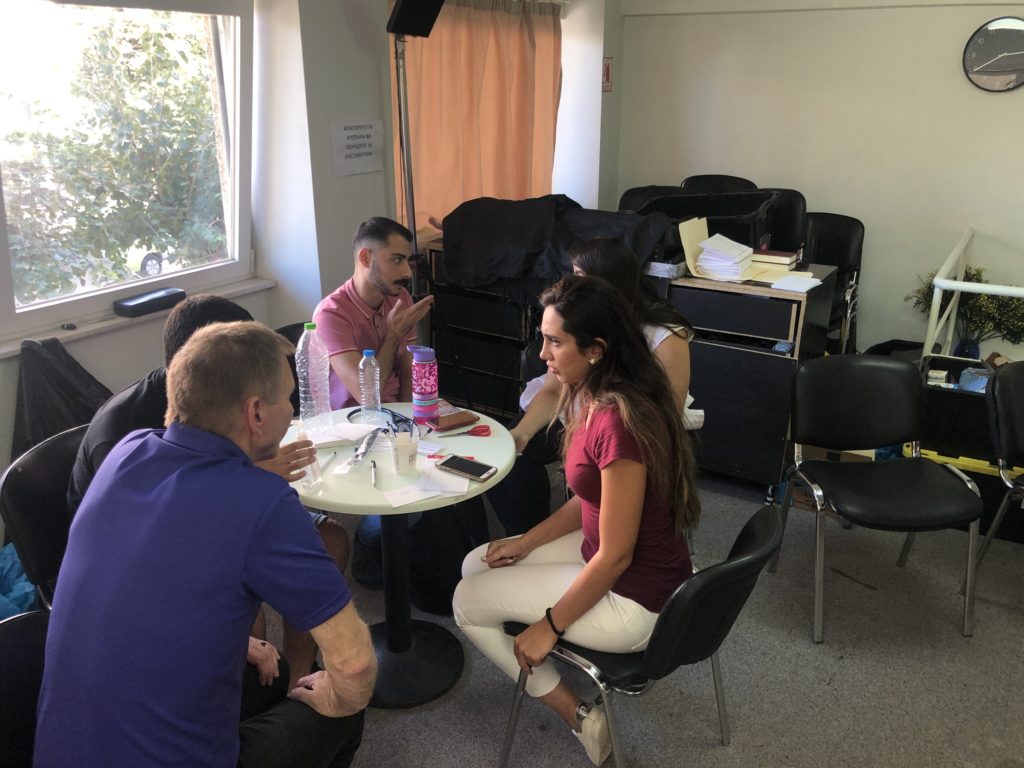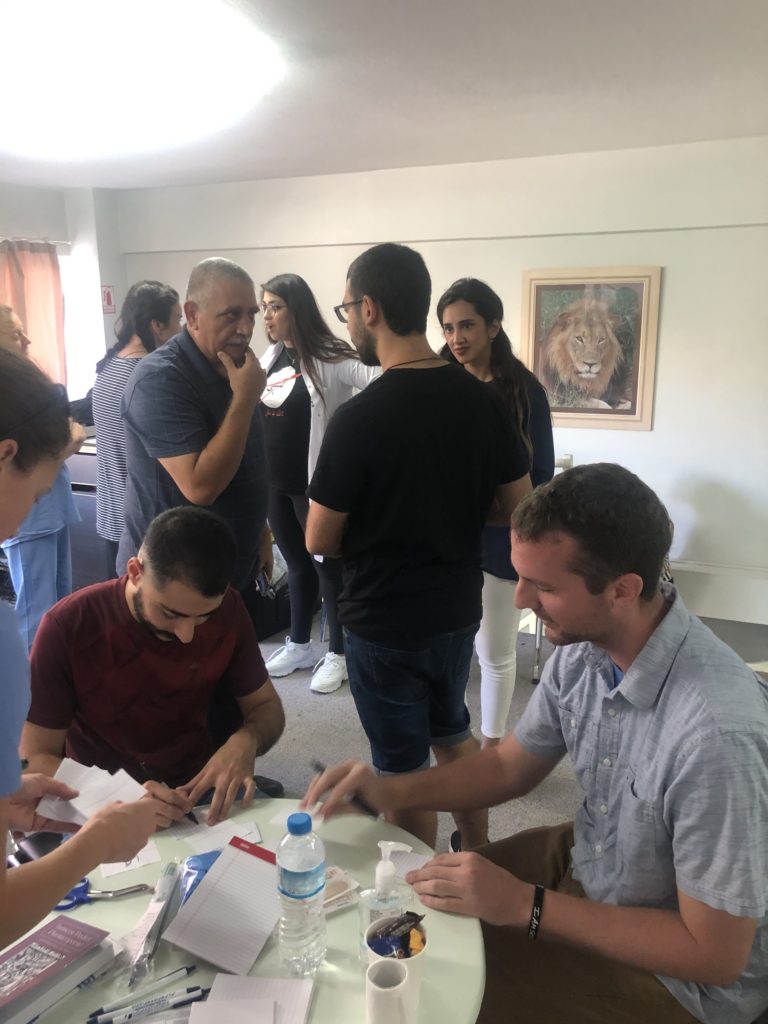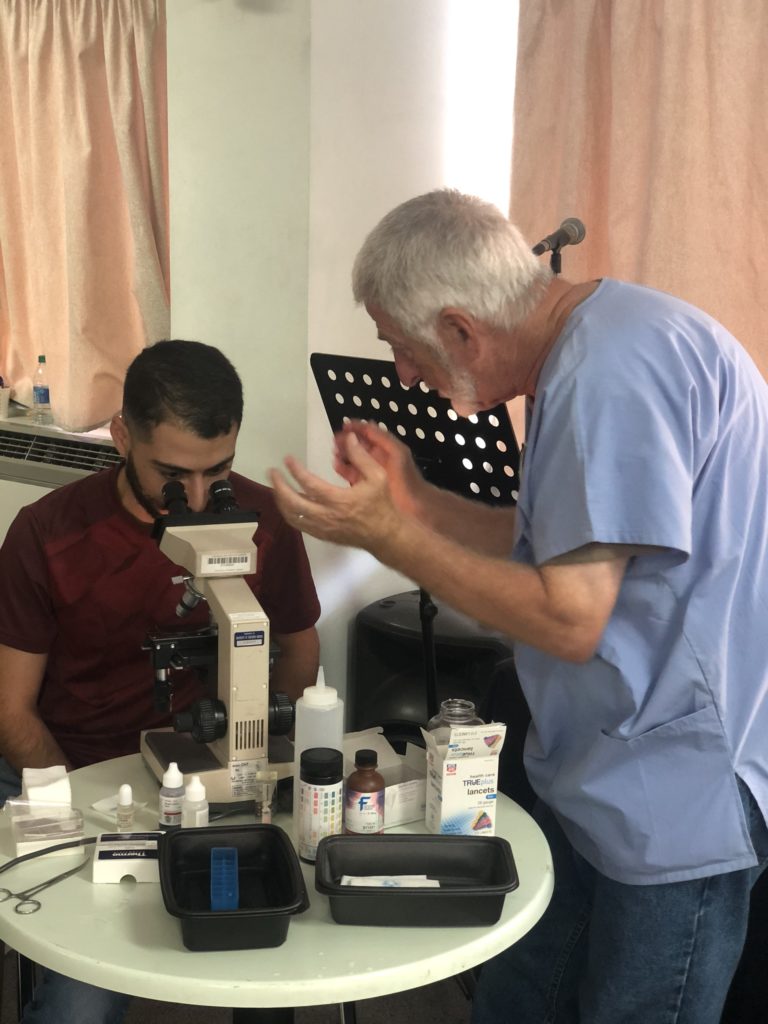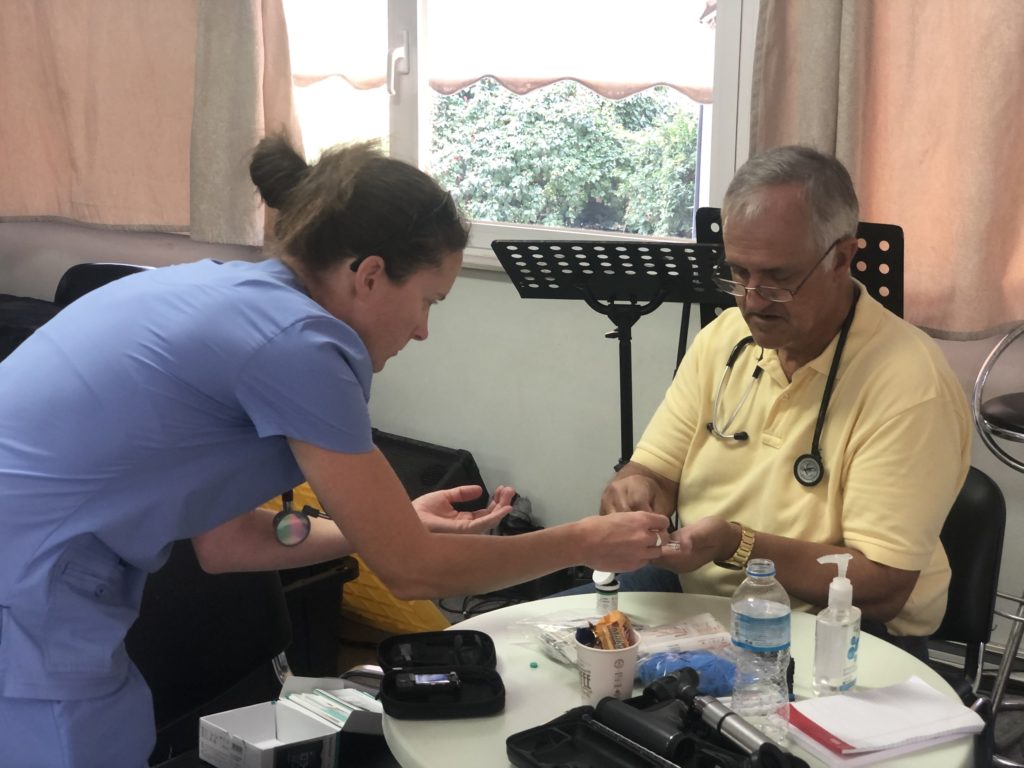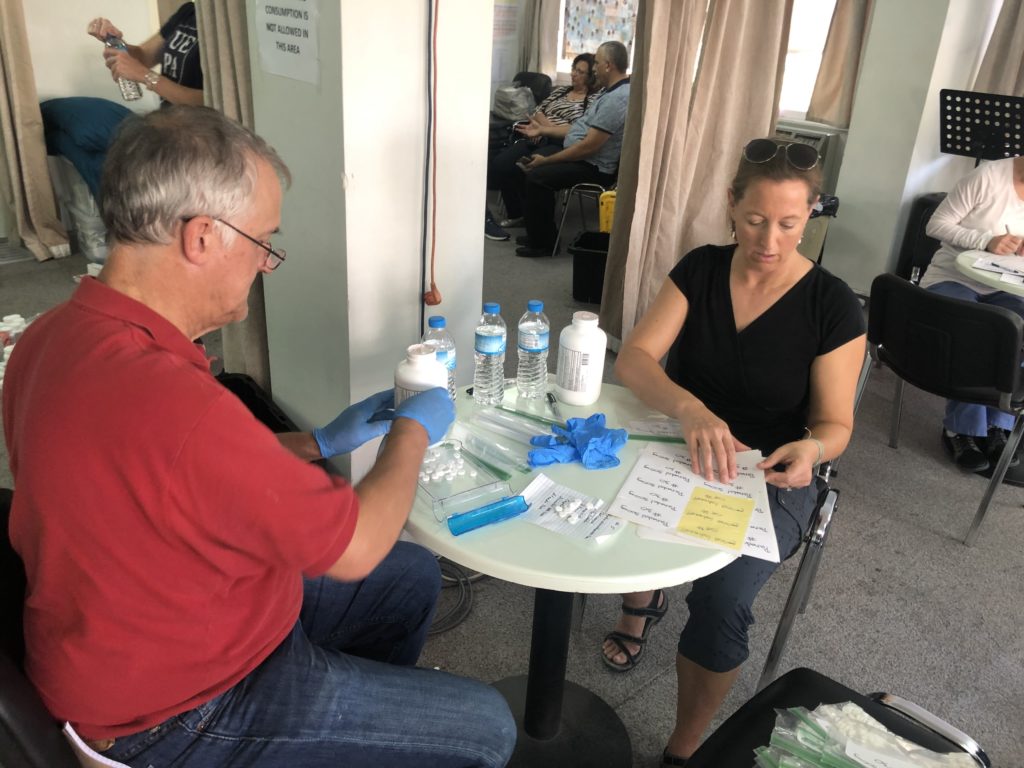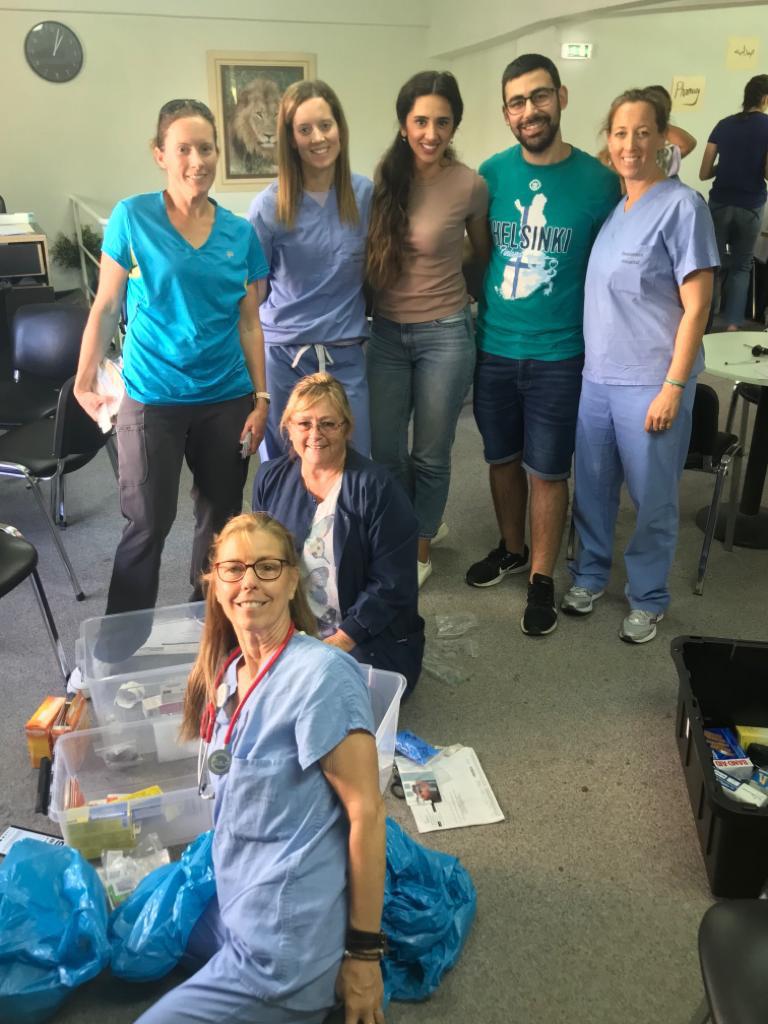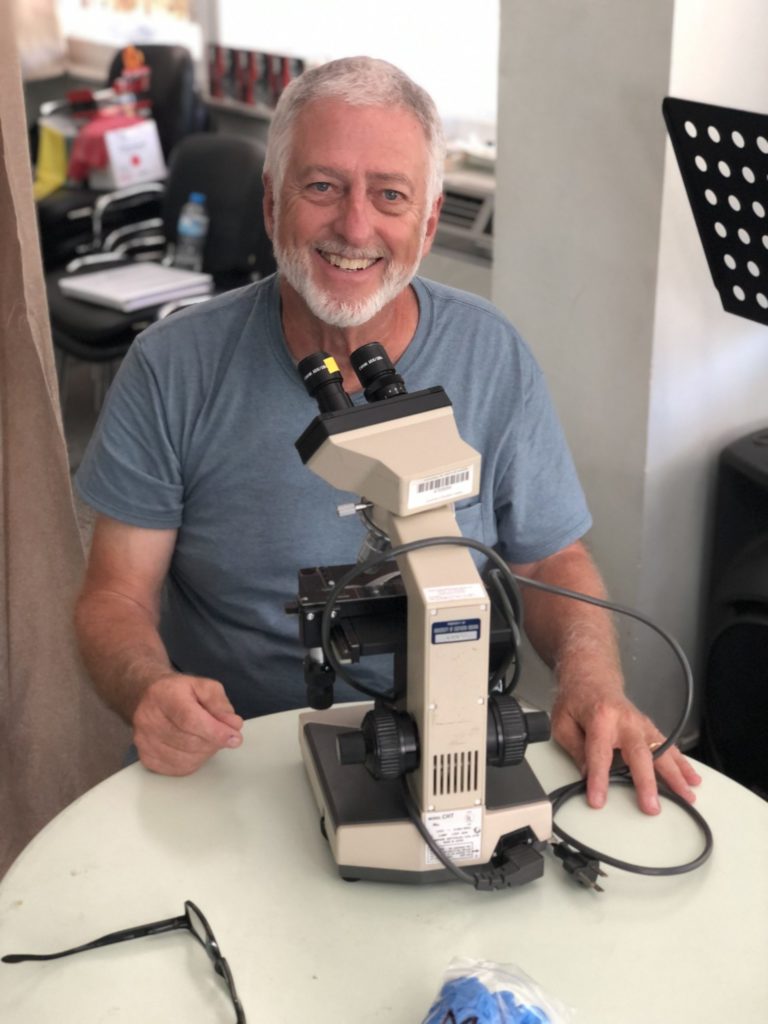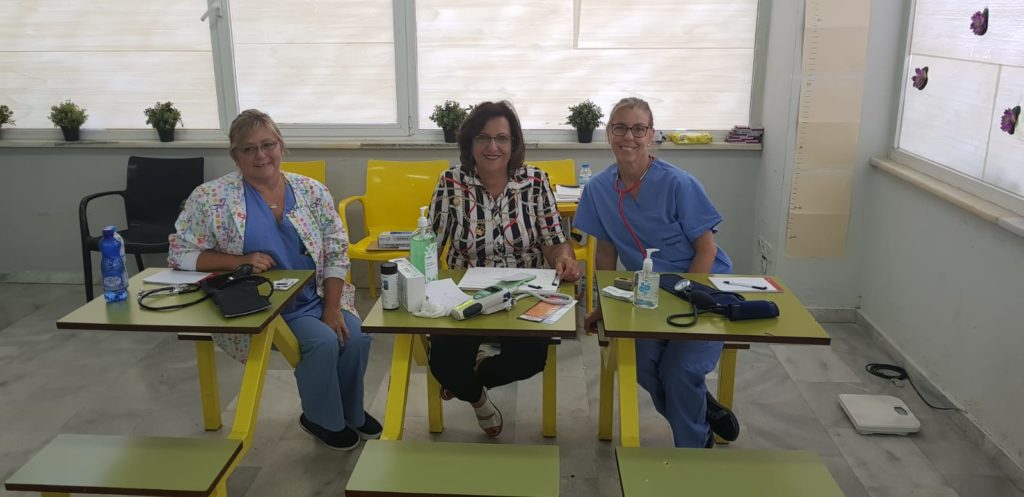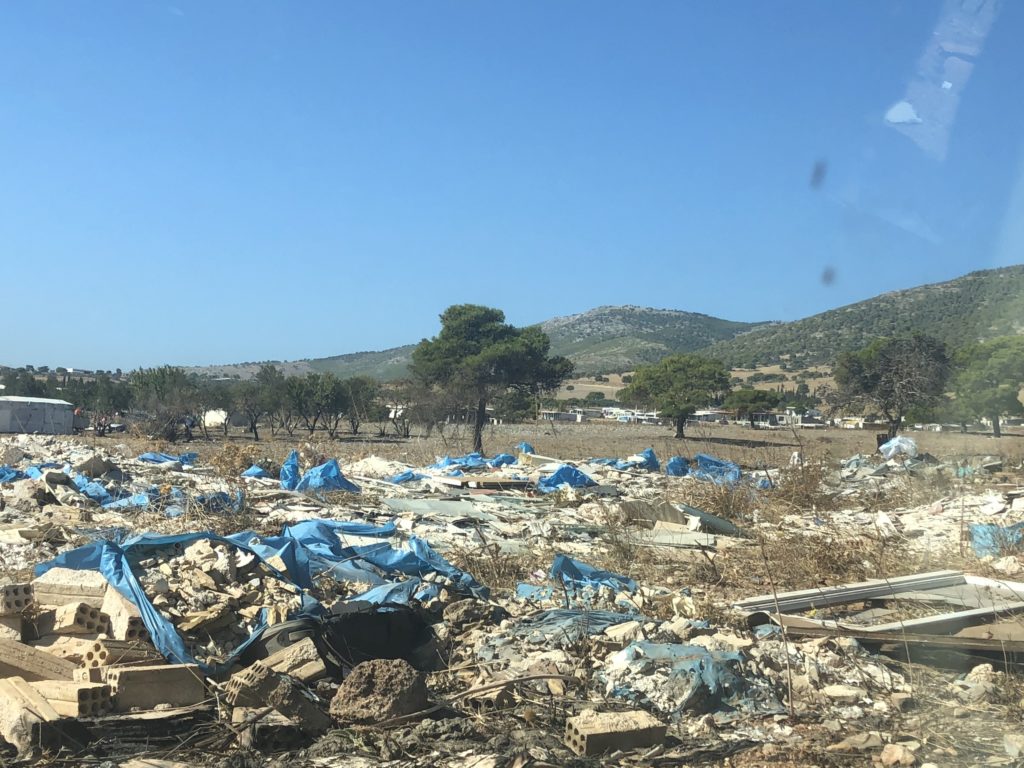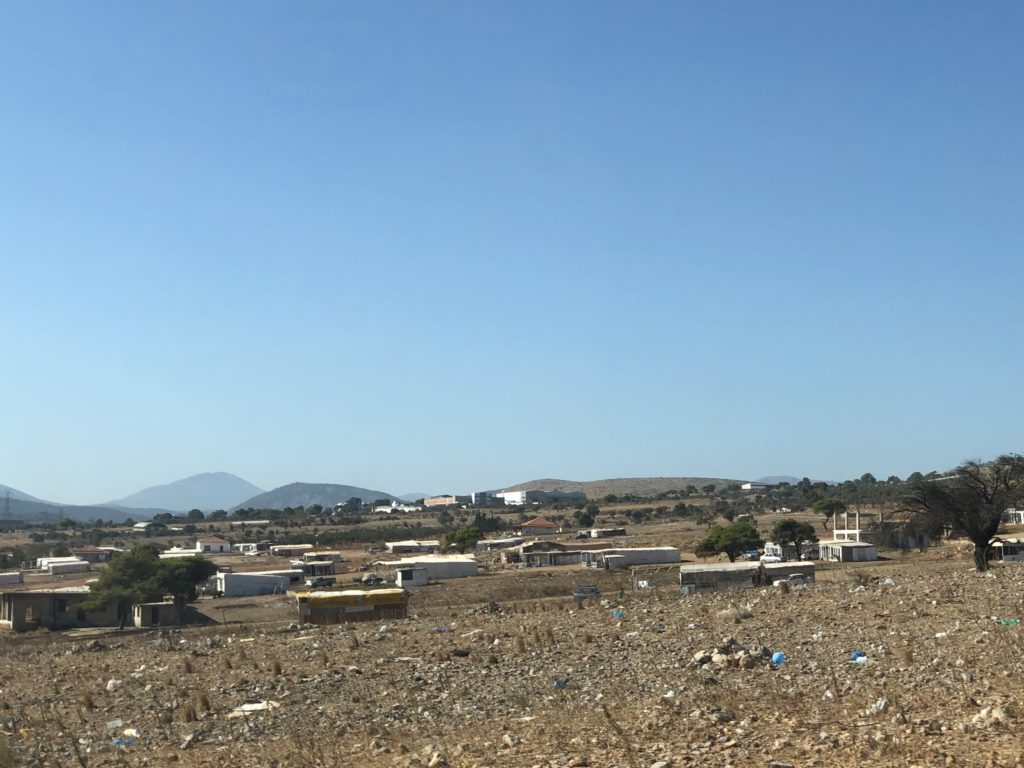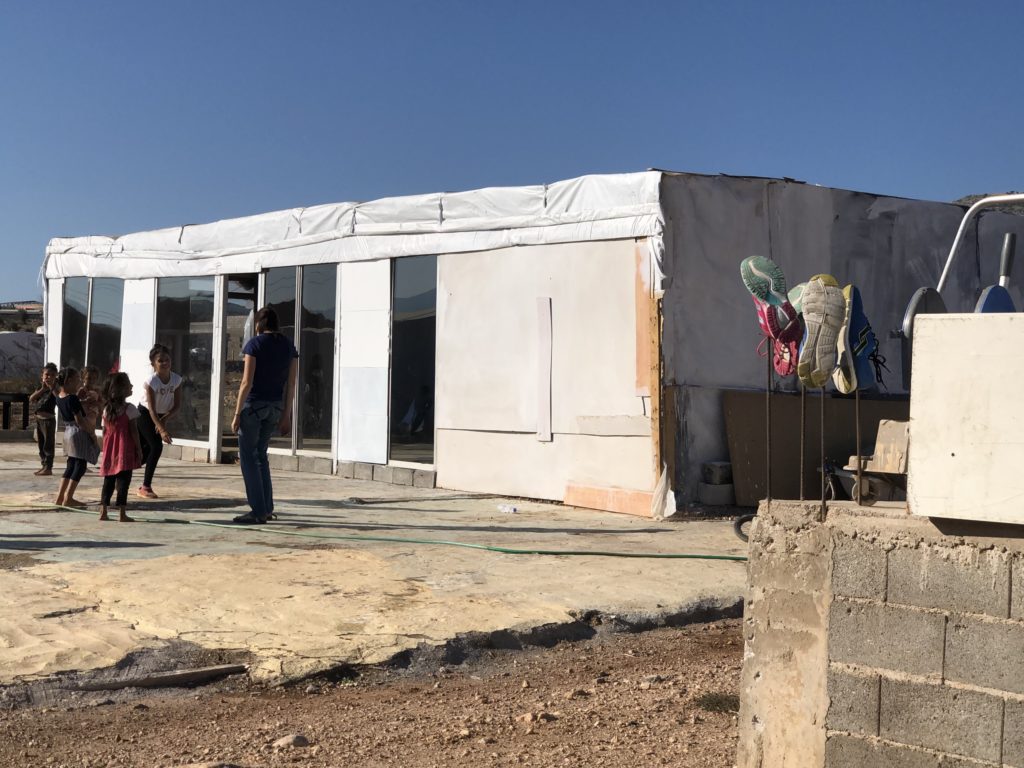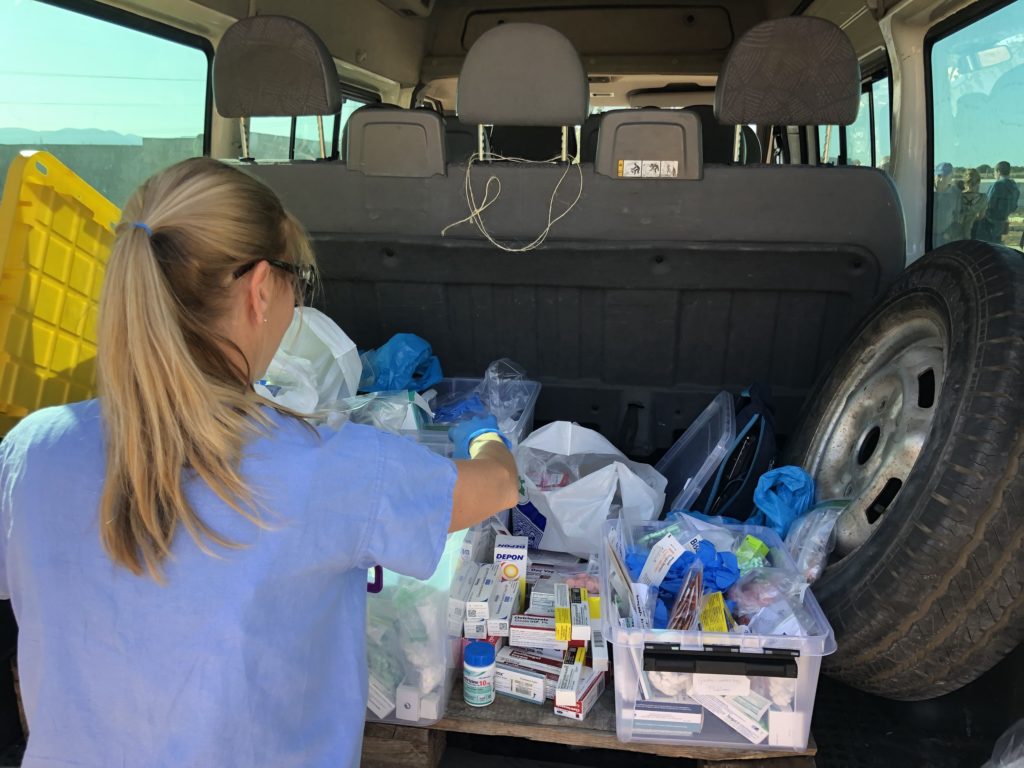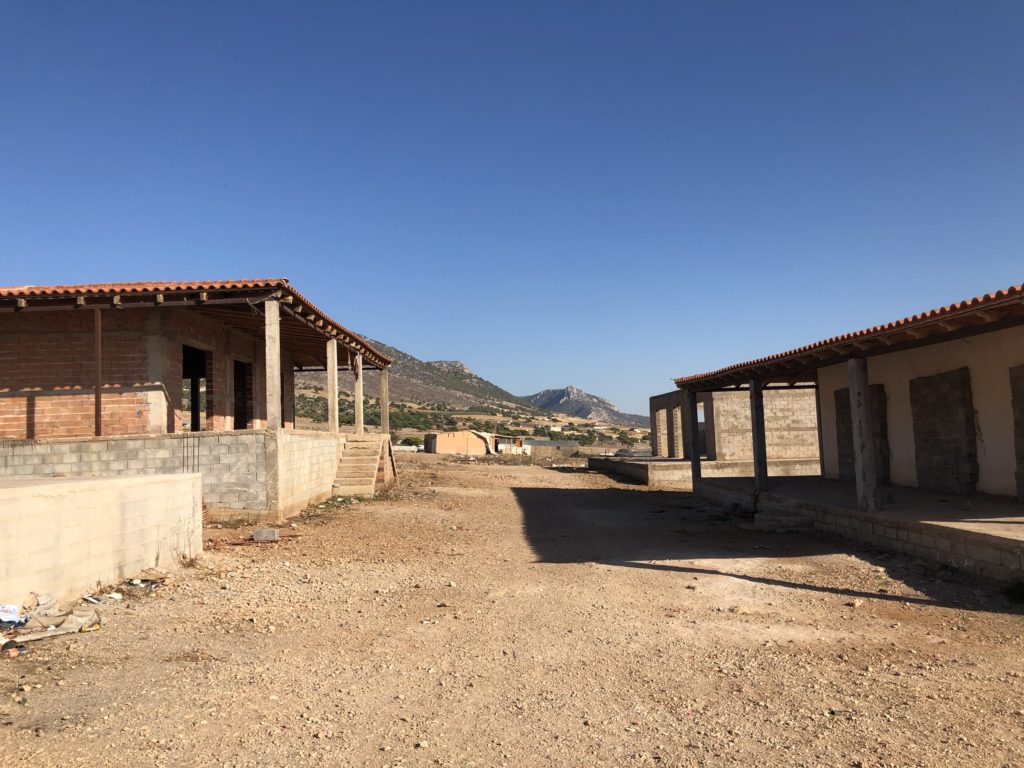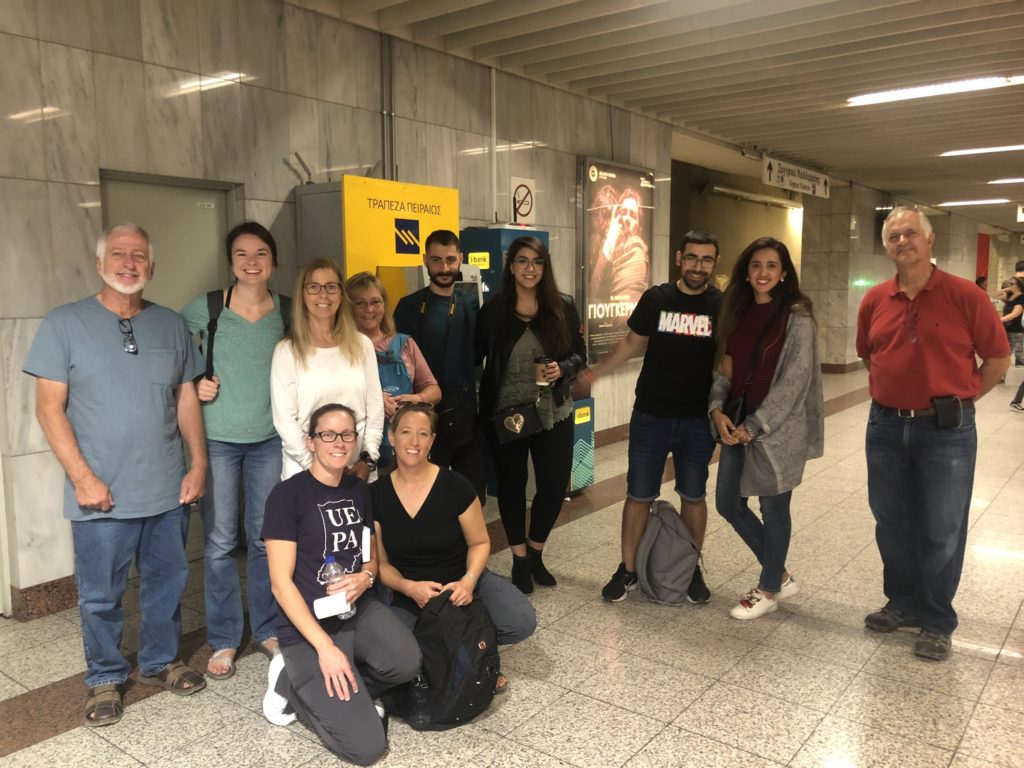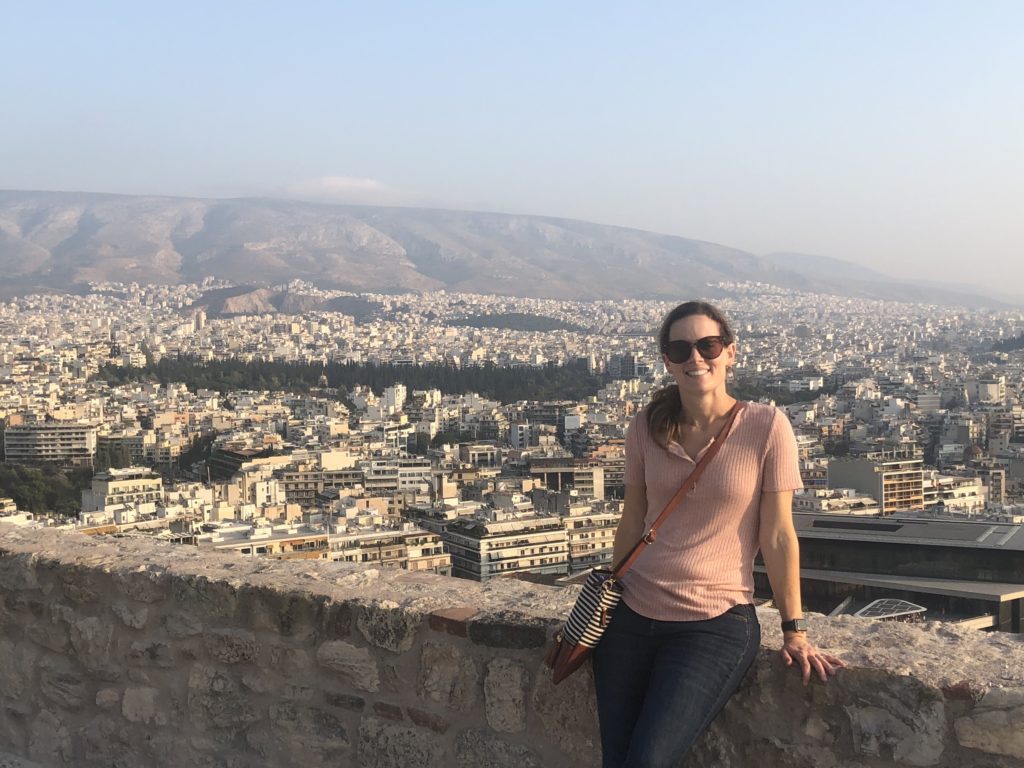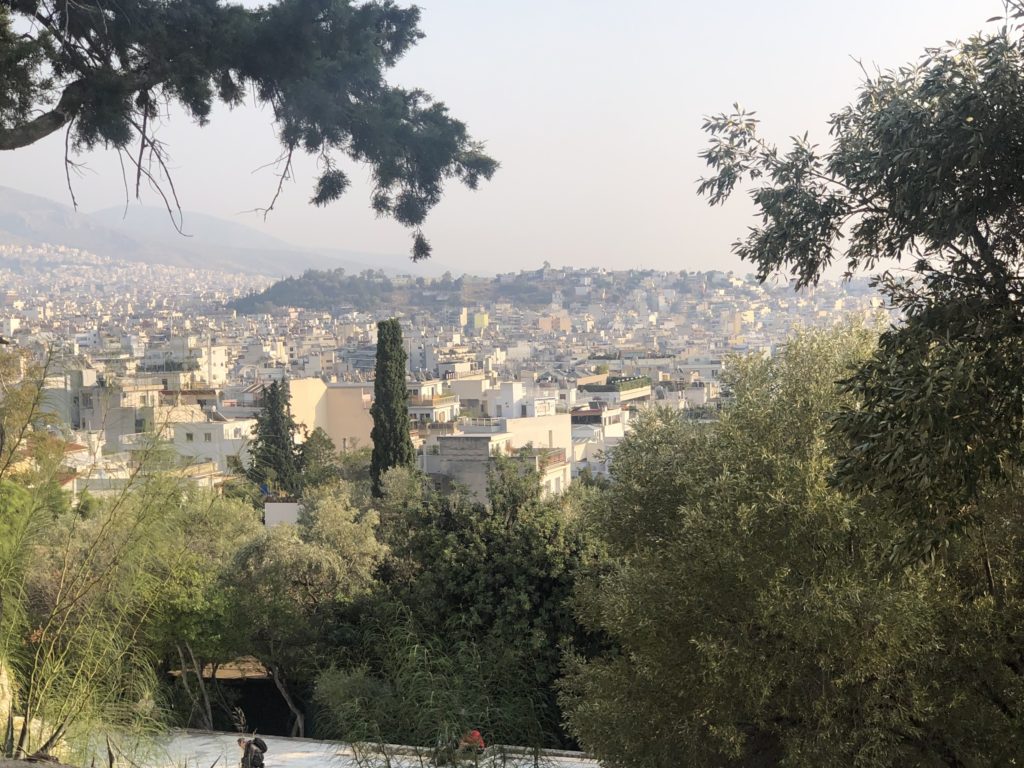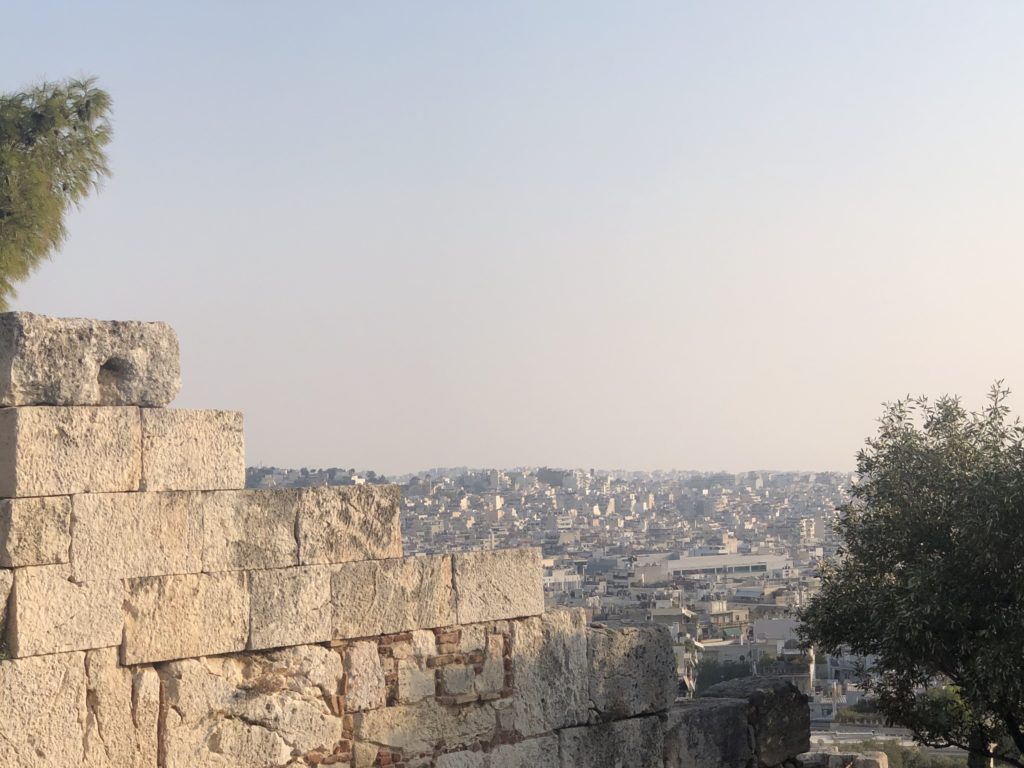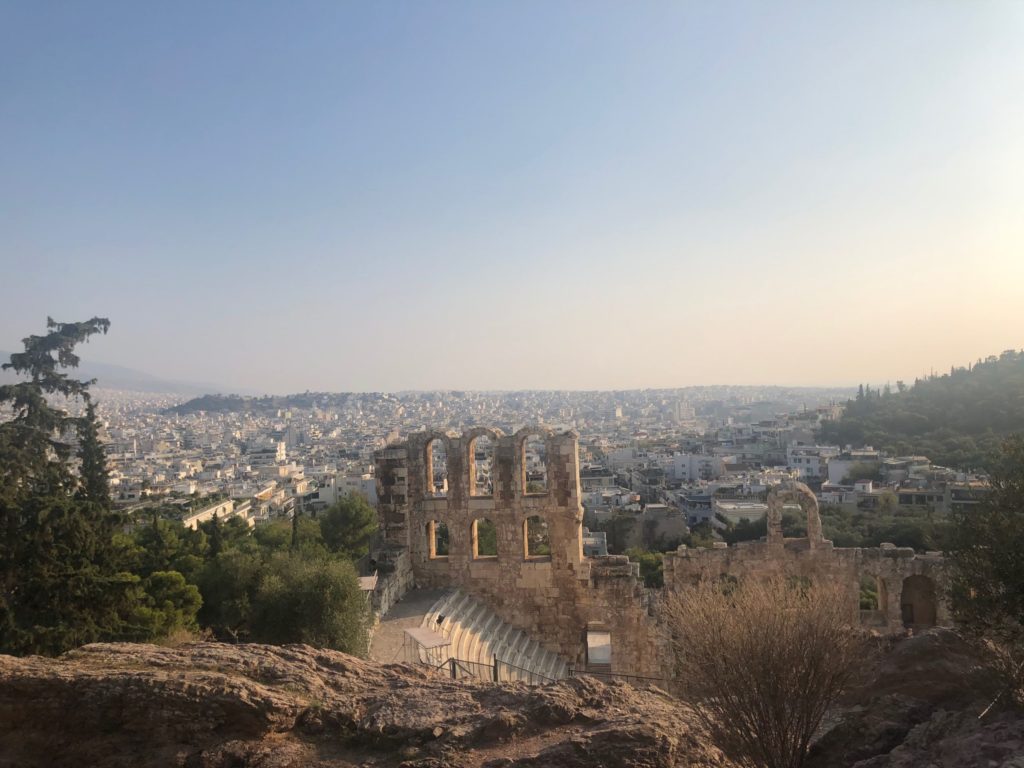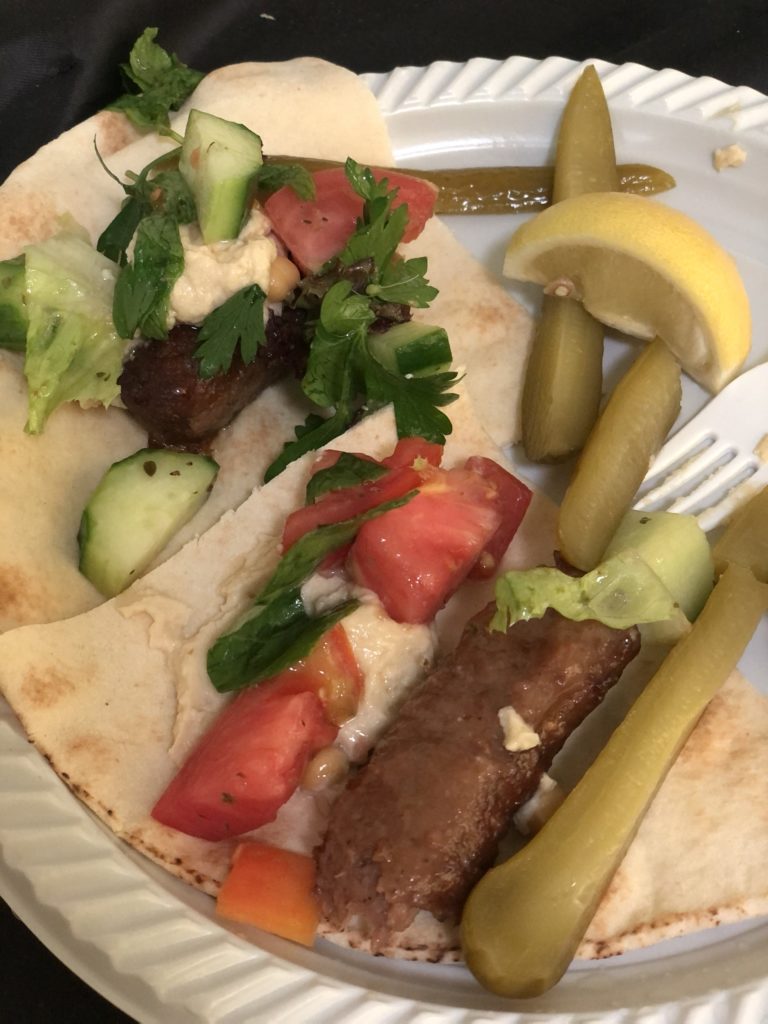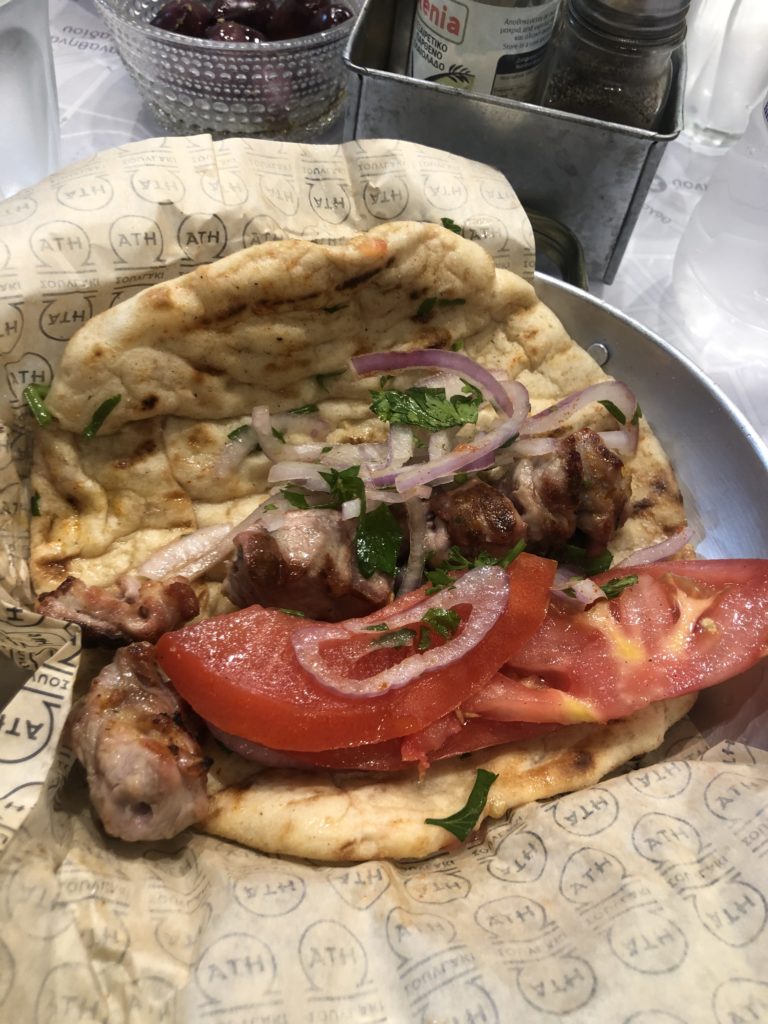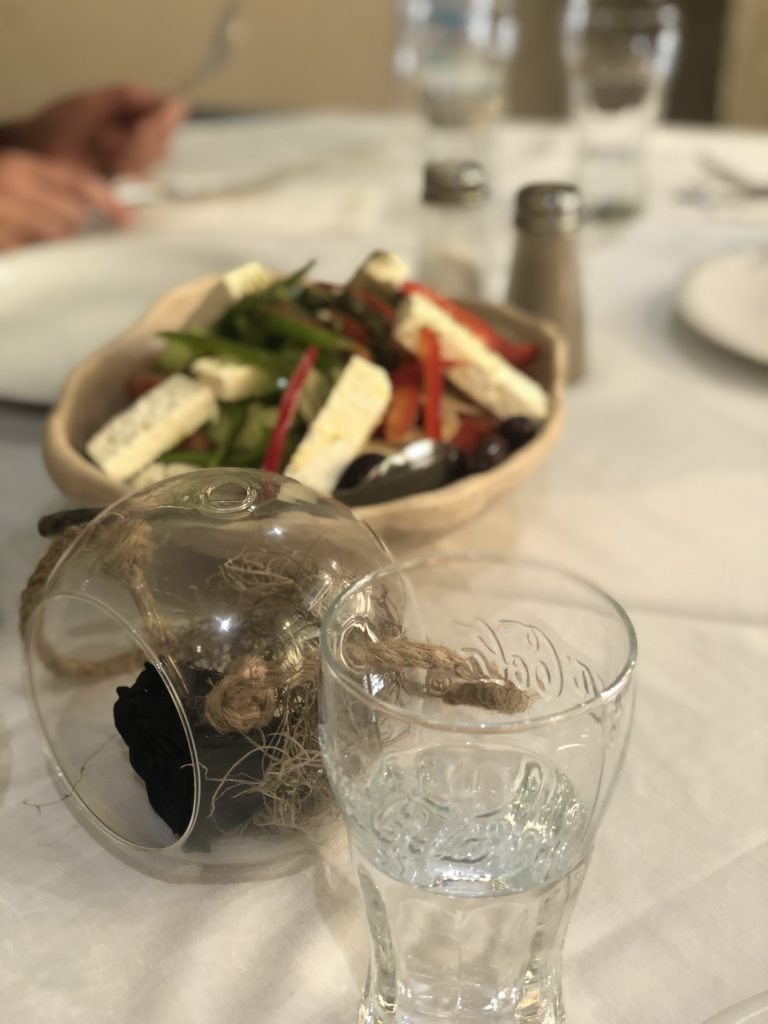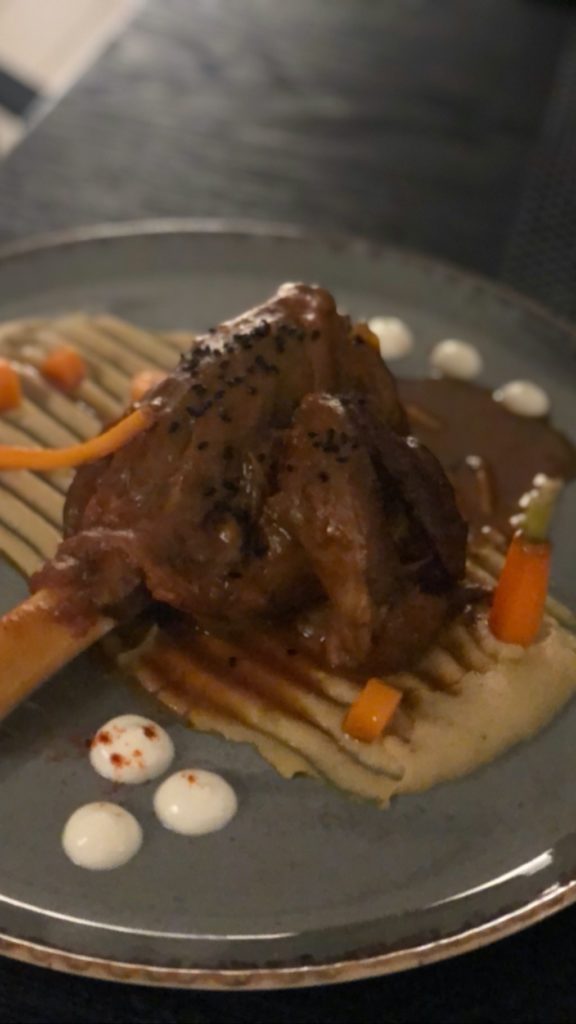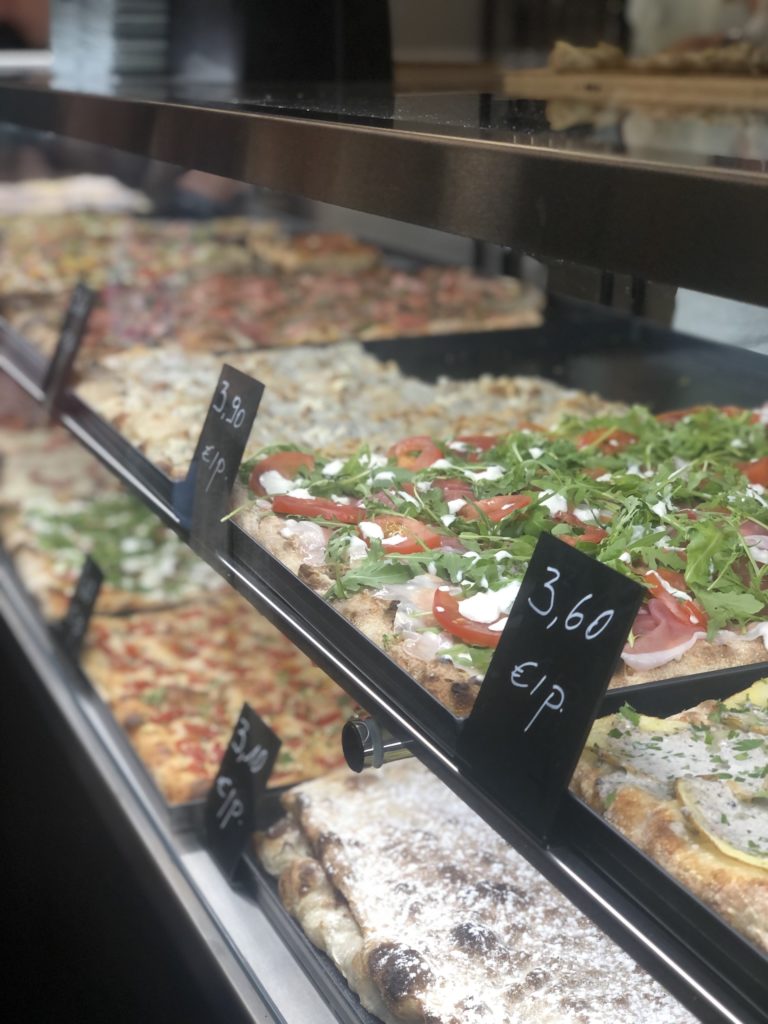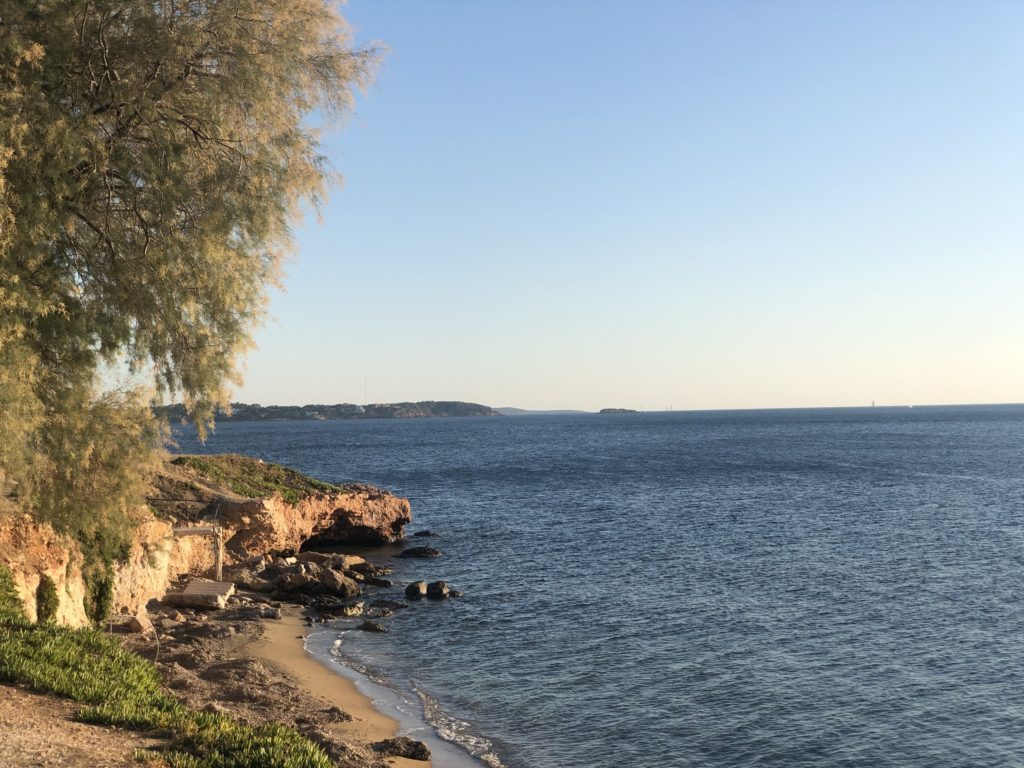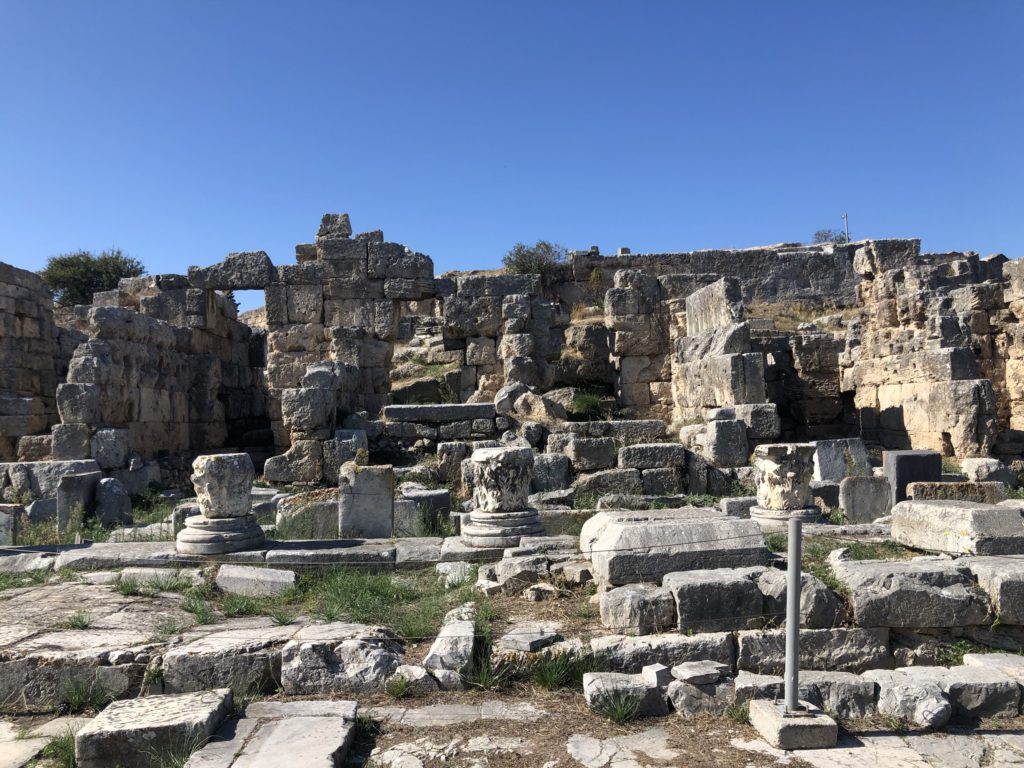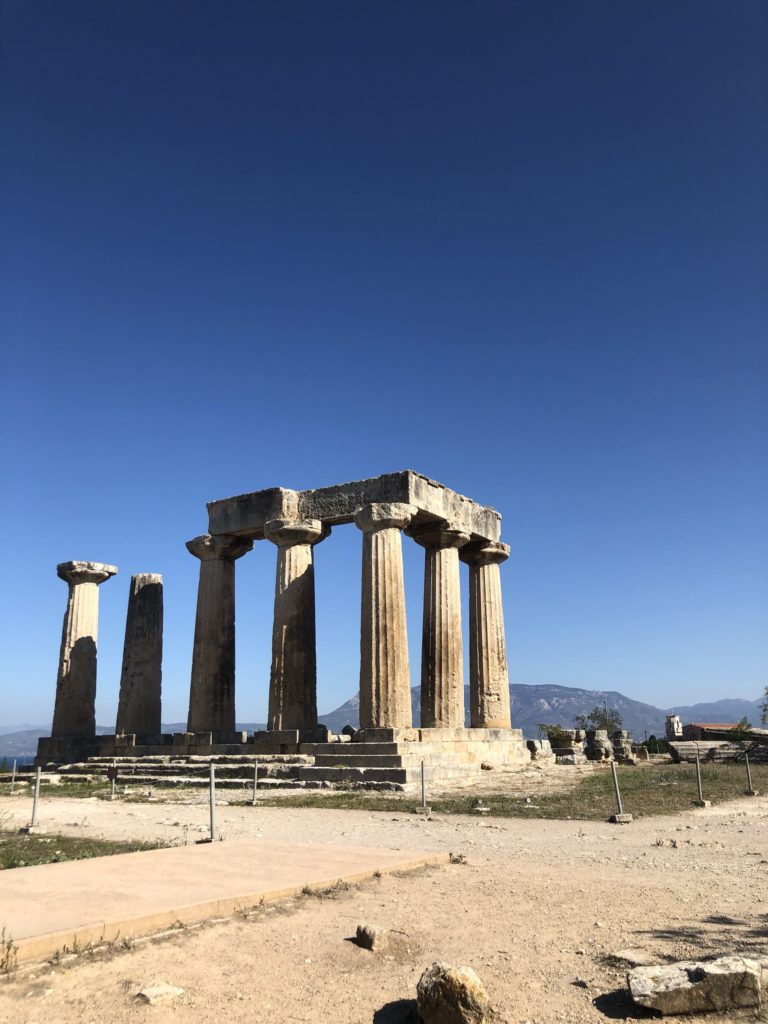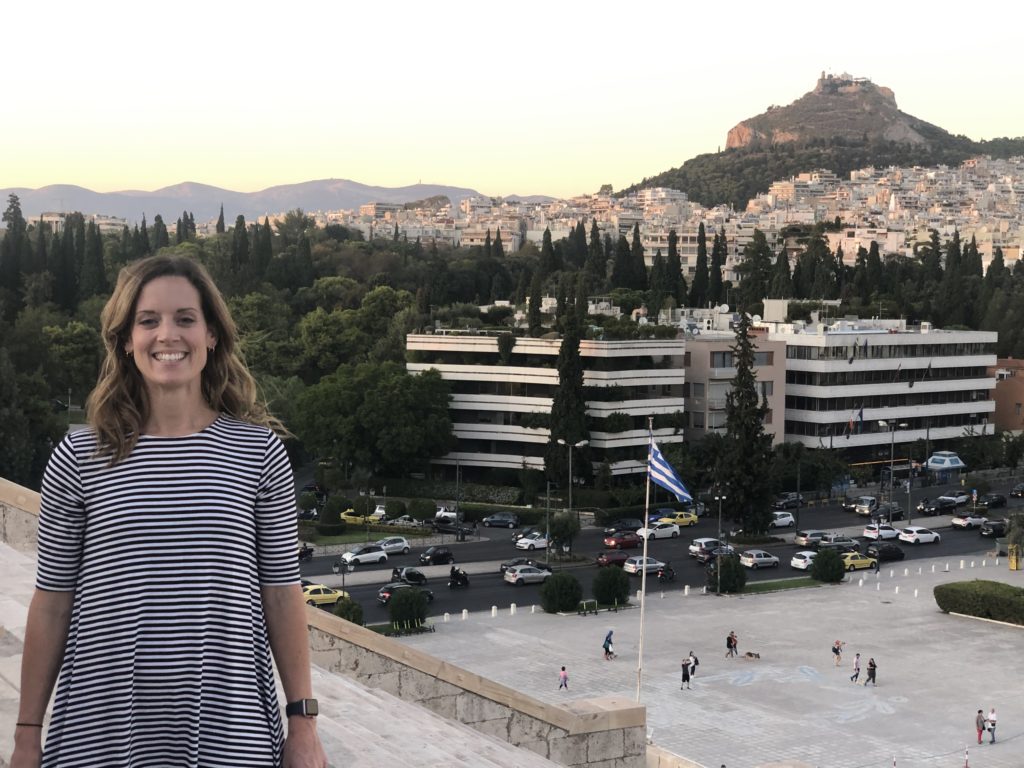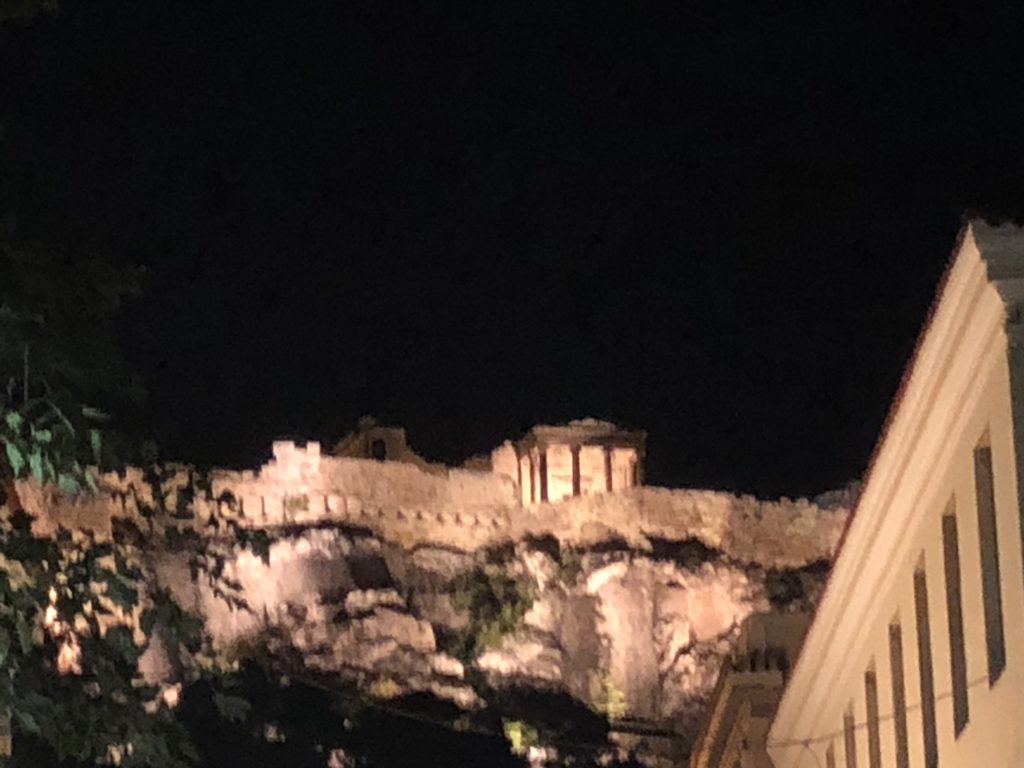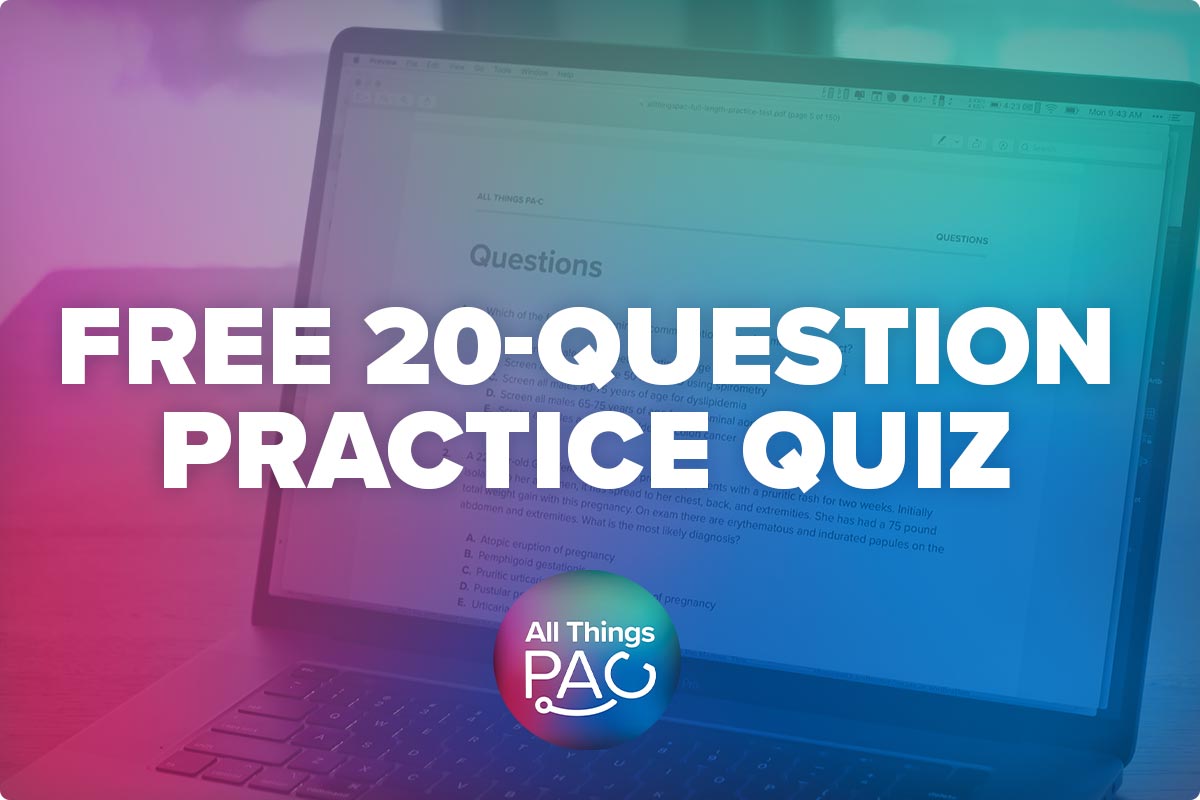Hopefully, you read Part 1 of this series where I spoke about planning a medical mission trip. In this post, I will talk about my experience as a PA on this medical mission trip to Athens, Greece in October 2019.
Over the past 10 years, Greece has received over 50,000 refugees. Most of these were fleeing Syria and other war-torn areas of the Middle East. Despite being above capacity, Greece continues to see refugees cross their borders and arrive on shore daily.
Many of these will no longer be able to travel deeper into Europe. There is no easy answer for how a country, who wasn’t doing very well economically to begin with, will handle this crisis. But any success will likely start with helping these people integrate into what will most likely be their new home. This includes healthcare.
We arrived in Athens on a Saturday evening. The next morning, our team attended the church which hosts the clinic we came to serve in. It was a beautiful experience; doing something so familiar and sacred but with a different culture and in a foreign language.
We had headphones and an interpreter to listen to the sermon. The music was familiar songs, so we were able to sing the words in English along with the congregation singing in Greek. It was truly an unforgettable experience and reminds me a little of what Heaven might be like- those from all tribes and tongues worshiping together.
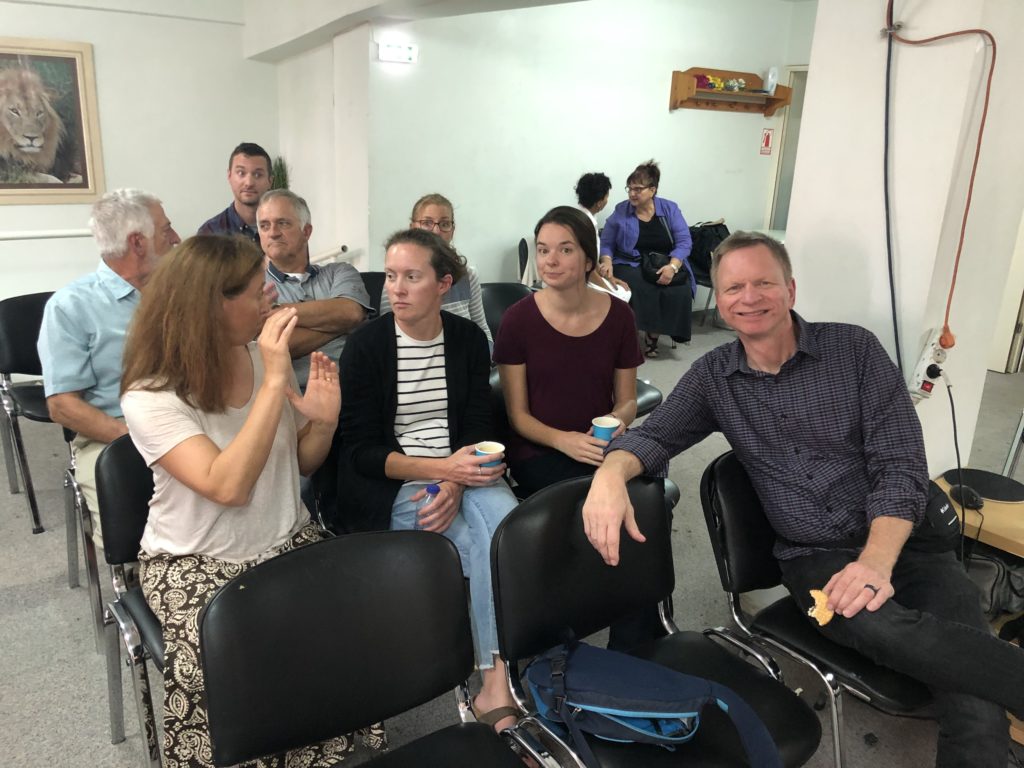
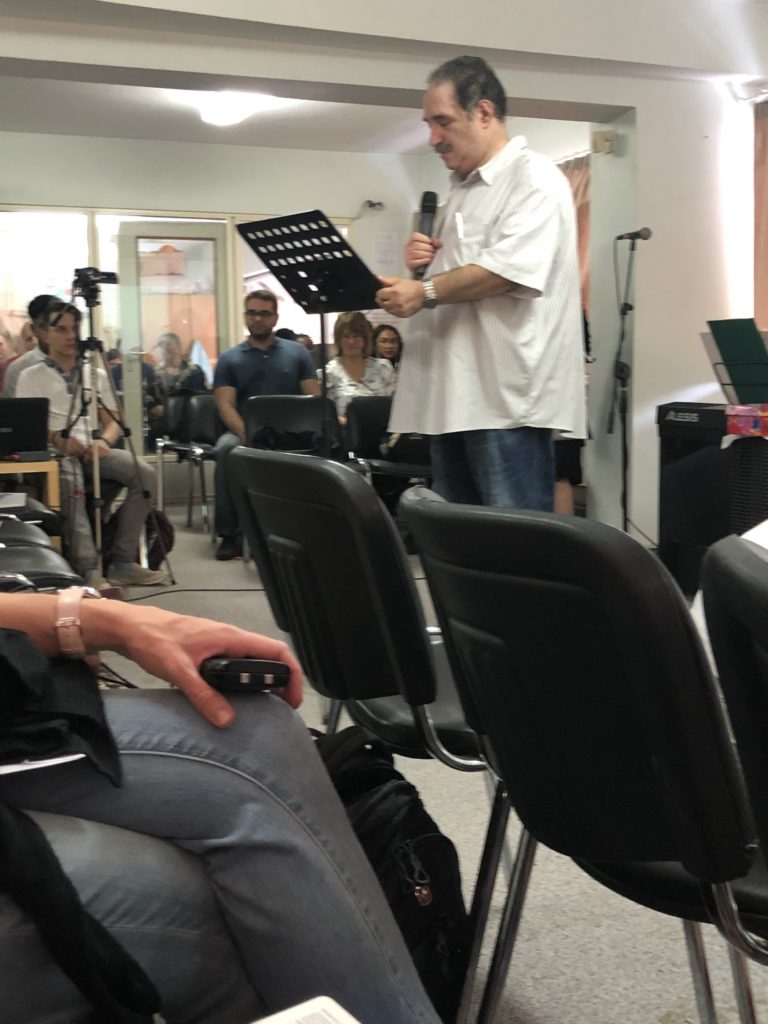
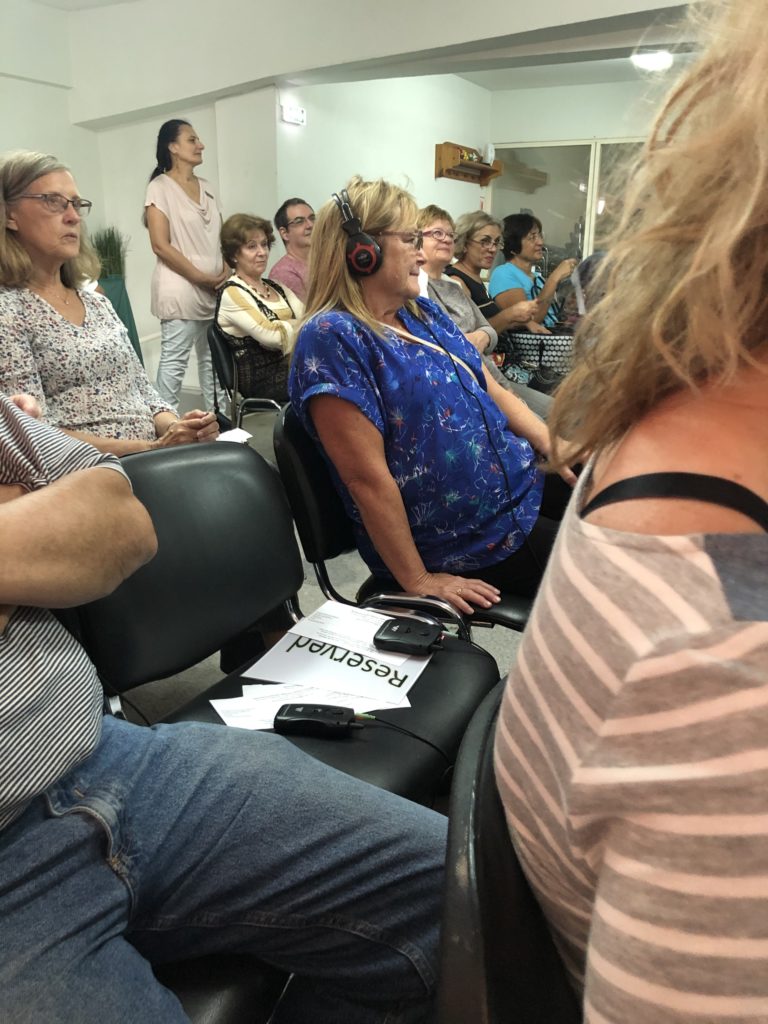
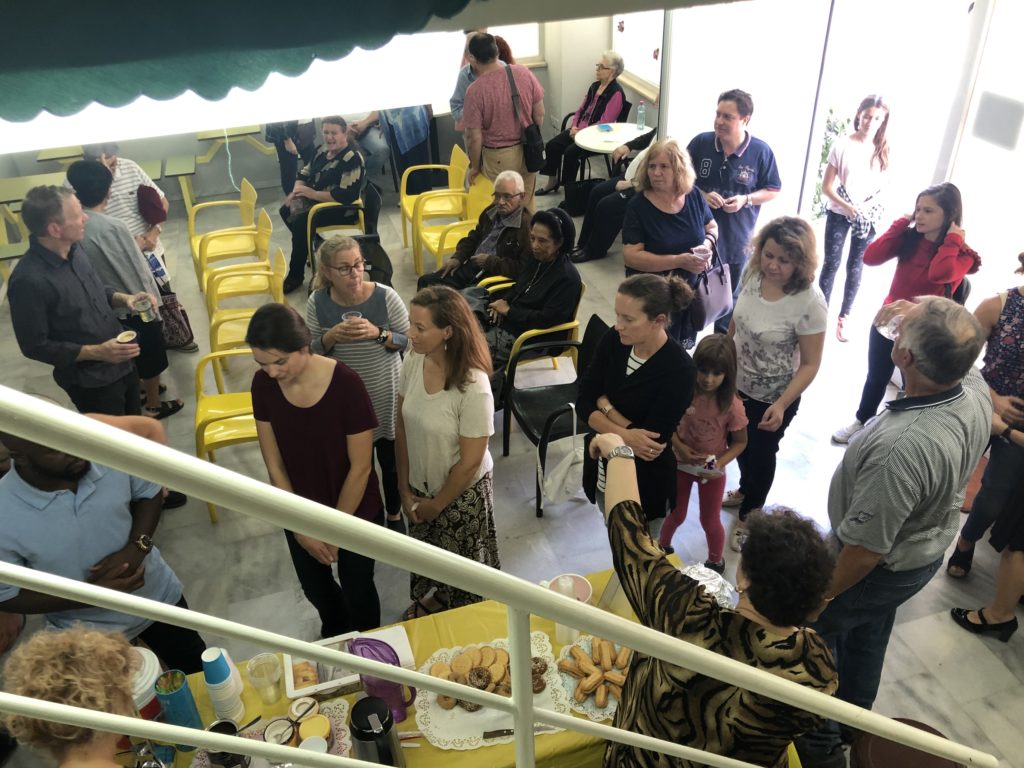
Sunday service
After the service, we unloaded our supplies and spent some time with the staff and volunteers there. They are a small church, about 100 members. But they do SO MANY things for their community. They have a food pantry, clothing pantry, English classes, and prison ministry just to name a few. They have specifically made an effort to provide services for the refugees and the poorest in their community.
Setting up
We took the entire next day to set up our “clinic.” I say clinic because it was really a large room we subdivided. My office was a small round table with my supplies and 4 chairs around it. Our triage was the small foyer of the church. Our pharmacy was a table in the corner, and our physical therapy clinic was a large corner of the room with a single exam bed. It was modest but mighty.
We counted and sorted pills for hours. This day we met our team of interpreters from Isreal. This was a young pharmacist, a family medicine resident physician, and two college students who spoke Arabic. All were a tremendous asset, but particularly we were fortunate to have two extra medical professionals. This team was so fun to hang out with, and we were immediate friends.
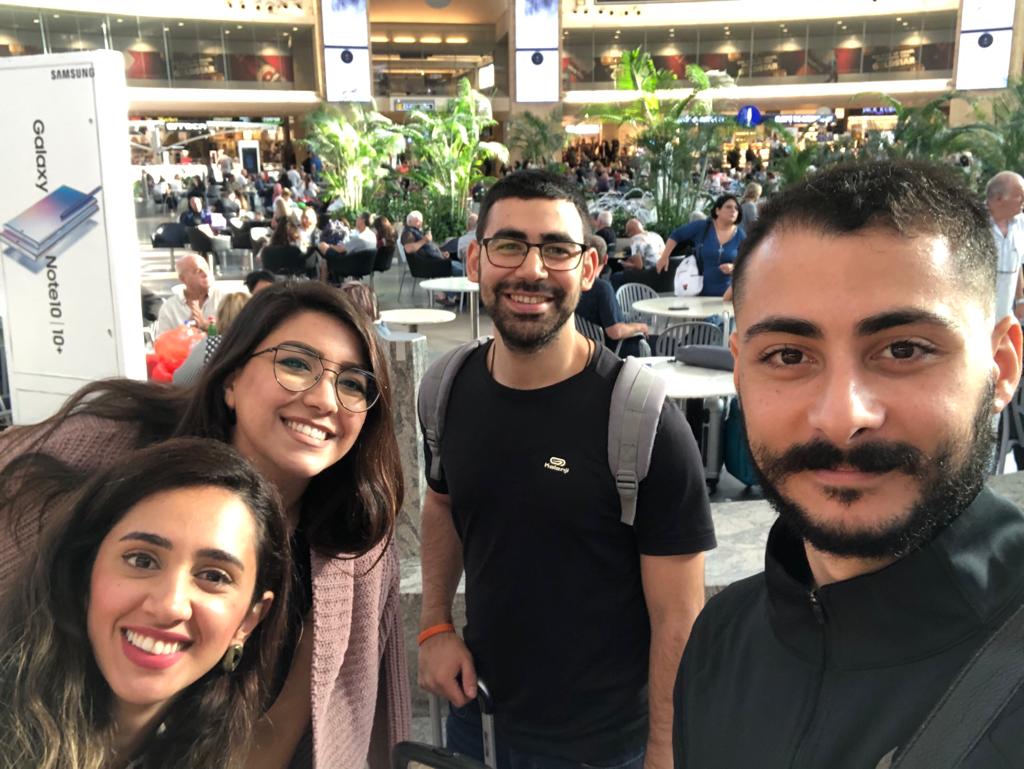
The next day, we arrived early and set up shop. The patients started arriving and our triage nurses handed out numbers and started intaking patients. The church attempts to keep some medical records for returning patients. We had simple SOAP notes we filled out, but nothing elaborate. It was a refreshing contrast from the exhausting documentation, time-stamps, and charting we have to do at home.
Our Patients
Patients of all ages and backgrounds came. Many mothers with their children, dads with children, entire families, and individuals. These are the cultures of large families. Their ailments were very similar to what I see here in the US- headaches, heartburn, aches and pains, and acute issues like fever, colds and sore throats.
But the etiologies were a little different. There were lots of headaches, but often these started when they left home months or years before. When I reviewed headache and migraine triggers such as fatigue, diet, stress, sunlight, etc… it was more like which trigger were they NOT experiencing on a daily basis?
Aches and pains? Weakness? Many of these people spent months traveling by land, sea, and air over long distances. Only to arrive somewhere to sleep on a hard floor, or crowded together, or on a bad mattress.
Weakness? I will never forget one young man with his small son, who when asked about why he might be weak, told our physical therapist he has no desire to eat or be active, because he is struck with grief over leaving his adult parents in Syria, and has no idea where they are or how they’re doing.
We had some, who weren’t actually sick but didn’t know when they’d be able to see a doctor or provider, so they brought everyone in to get “checked out.” Others brought labs, tests and office notes from local hospitals and asked us to look over them, and make sure we agreed they were receiving adequate treatment.
The Clinic
We didn’t have a lab, but we did have a microscope and a lab tech who was 78 years old and knew how to do manual slides. He actually taught me how to do this which was fun. Anemia. Everyone had anemia from poor diets and malnutrition. We tried to hand out iron supplements and vitamins to as many as we could.
What’s different about practicing medicine in a setting like this is without major resources we have at home, your history taking and exam skills become very important. You have to turn into sort of a MacGyver.
One young girl continued to have a recurrent ingrown toenail with cellulitis. Her mom begged us to remove the toenail. At first, I tried to apologize that we didn’t have the resources to dot that. But then I realized, maybe we do.
We had a laceration tray, lidocaine, some sterile drapes, and dressing materials as well as antibiotics. If we didn’t attempt this, she would surely continue to deal with this repeated issue.
The physician on our team and I arranged an exam table out of chairs and attempted through a translator to calm the young girl down. The digital block wasn’t fun, I’ll just say that. But she did great and we were able to do a partial nail removal successfully, bandage her up, and get her follow up care with the next clinic that was coming in a few weeks.
Visiting the Romani camp
We were asked by the pastor if we would like to spend one afternoon traveling to the Romani camp to provide medical care. The Romani people, often known by most as Gypsies (although this is actually a derogatory term), have a long and disturbing history of persecution. We were told the Romani camps in Greece were actually worse than the refugee camps. This church has been trying to build programs to help the Romani children receive an education and better integrate into the Greek culture, hopefully setting them up for a better future.
We traveled about 30 minutes outside of Athens to the camp. Upon arrival, I was struck with the contrast of the scene. If I looked in one direction, I could see the beautiful Mediterranean coastline. If I turned around, there were acres and acres of 3 and 4 walled structures, some with roofs and some without, and mountains of trash. No running water. No electricity. We went from 1st world to 3rd world in less than an hour.
Providing care was a bit of a mess. The kids came running first. Dirty, smelly, but smiles that made you forget that. Then the moms came. Not moms I was used to seeing. These moms were 14 and 15 years old in some cases. And with several kids. No men were to be found.
The Romani kids here get married very young (to young men as well). They have lots of kids early. They don’t receive an education. They never get ahead.
We were basically swarmed by the kids and moms, and tried as best as we could to provide care. There were lots of rashes and skin issues.
I remember seeing this during my trip to Mexico as well- when people saw others were given medication or really anything, others would come up and say they have the same problem even if they didn’t. They just wanted to be given something, anything. Even if it was just Tylenol and they didn’t need it.
We eventually got a little uncomfortable handing out medications we weren’t sure they actually needed and couldn’t confirm they understood directions on taking. Our translators here weren’t medically trained and a lot was getting lost in translation. The last thing I wanted was for a young mom to overdose her toddler with cough medicine. So we shut down our mini pharmacy and spent some time just hanging out with the people.
Again, this was just another experience where we were able to spend time and show respect to people who weren’t used to receiving that. On the ride back, the Pastor was sharing with me his vision to establish a program that would provide housing and education to Romani families who were willing to work and meet program guidelines. He is hoping to bring more medical clinics to the camp in the future, and he was glad to have us go and observe the environment. His vision for helping the poor and marginalized in his community, when the government, citizens and everyone else was turning a blind eye, was so inspiring.
My Takeaways
What I’ll remember the most about this trip is not providing medical care, but rather being able to look people in the eye who were just like me. They were moms, sisters, daughters, and friends. But because of things completely out of their control, they lost everything. And now found themselves in a new country, a new culture, and just trying to figure out the next step. People had stopped looking at them in the eye.
During one moment while my translator stepped away, I was with a woman my age and mom of 5 who brought one of her children in to be seen. Although I couldn’t speak to her, I put my hands on her baby and just smiled, saying her daughter was so pretty and sweet. I knew she understood me.
I then took out my phone and showed her pictures of my kids. She smiled and put her hand over her heart. I told her their names and she smiled some more. I knew that despite speaking different languages, we connected as two moms who loved their kids. Then, she reached in her purse and pulled out pictures of her children, pointing to them and telling me their names as a proud mom does. I smiled and told her they were beautiful but had trouble holding back tears. While I was showing her pictures of kids on my iPhone, she was showing me pictures from their asylum cards.
This woman was not very different from me. Born the same year. Smart. Driven. Probably even financially well off (most of the refugees who fled were ones who had resources and money and could afford to get out). Except unlike me, she lived in a country that would one day fall apart. And she would have no choice but to flee and try to protect her children. I will likely never know that kind of fear. These feelings were hard to process.
But what I can do, is not forget them. I can support trips like this by going, which I was so thankful to experience. I can support and fund organizations that are already established and making a difference.
I’m not speaking for anyone but myself, but as a physician assistant, I lead a comfortable life. I don’t have everything I’ve ever wanted, but I don’t want for much. I am grossly aware that is not how the majority of the world lives. This trip allowed me to see that first hand.
Again, speaking only for myself, I do feel a responsibility to give of my resources, be it financially or skills. I hope by sharing this, my experience maybe influences you to do the same. Not by guilt, but rather by inspiration.
And if that isn’t enough, it wasn’t all work. We had time for fun and a chance to experience beautiful Athens and even traveled to Corinth on our last day.
I ate some of the best food I’ve ever had that week. I was up close and personal to some of the world’s most historic landmarks. It was an amazing trip on all fronts and I hope to do it again soon.
In Part 3, I’ll do a Q&A style post about medical missions, answering questions you all submitted to me. Feel free to reach out or email me with any additional questions at [email protected].
I do not have many pictures to share of the refugees. Out of respect, and also for their safety, we were asked not to take photos. Many of them would receive persecution if it were known they sought help or care through a church or from Americans. I tried to post pictures I thought would be helpful to visualize the clinic and this experience.

